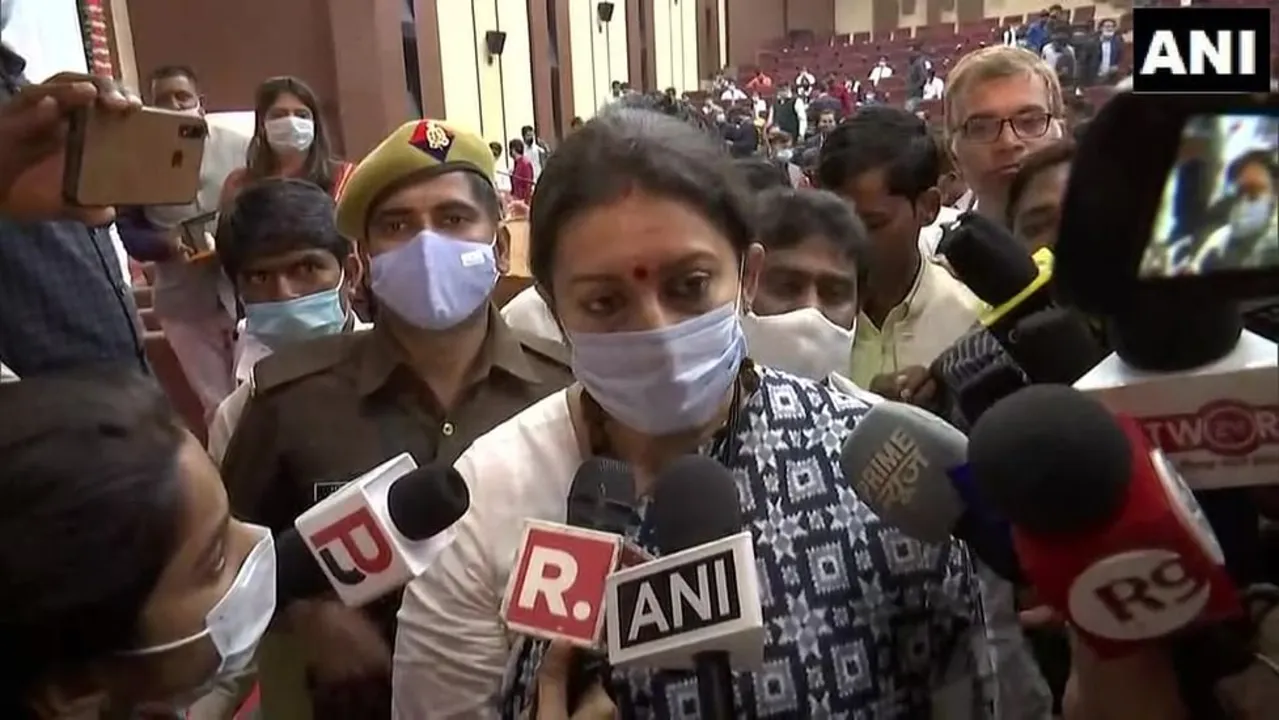An Introduction to Smriti Irani
Smriti Irani, a well-known Indian television actress and former model, made her foray into politics in 2003. Over the years, she has become a prominent figure in the Indian political landscape, particularly as a member of the Bharatiya Janata Party (BJP). In 2014, she was appointed as the Minister of Human Resource Development (HRD), a role she held until 2016. The question that many people ask is whether Smriti Irani was a deserving HRD minister.
Her Journey from Acting to Politics
Before venturing into the world of politics, Smriti Irani had a successful career as an actress. She gained immense popularity for her role in the television soap opera "Kyunki Saas Bhi Kabhi Bahu Thi," which aired from 2000 to 2008. Her transition from the acting industry to politics was met with mixed reactions. While some praised her determination and commitment to public service, others questioned her qualifications and suitability for a political career. Nevertheless, she proved her critics wrong by winning a seat in the Rajya Sabha in 2011 and becoming one of the youngest ministers in the Indian government.
Academic Qualification Controversy
One of the significant controversies surrounding Smriti Irani's appointment as the HRD minister was her academic qualifications. There were discrepancies in her educational background, as mentioned in her election affidavits. She had stated that she completed her Bachelor's degree in 1996 from the School of Open Learning (SOL) at the University of Delhi. However, in another affidavit, she mentioned that she had a degree in commerce from the same university. The opposition questioned her suitability for the role of HRD minister, given the inconsistencies in her academic credentials.
Major Initiatives as HRD Minister
During her tenure as the HRD minister, Smriti Irani introduced several new policies and initiatives aimed at reforming the education sector in India. Some of the significant initiatives included the Rashtriya Avishkar Abhiyan, which aimed to promote innovation and research in schools and colleges; the National Institutional Ranking Framework (NIRF), which ranked educational institutions based on specific parameters; and the Global Initiative of Academic Networks (GIAN), which aimed to bring international faculty to Indian institutions. These initiatives showcased her commitment to improving the quality of education in the country.
Handling of Student Protests and Controversies
Smriti Irani's tenure as the HRD minister was also marked by several student protests and controversies. One of the most notable incidents was the suicide of a Dalit research scholar, Rohith Vemula, at the University of Hyderabad in 2016. His death sparked widespread protests, and Irani's handling of the situation was criticized by several sections of society. Additionally, her intervention in the JNU sedition case in 2016 led to further criticism and questions about her ability to handle sensitive matters.
Impact on the Education Sector
During her tenure as the HRD minister, Smriti Irani made efforts to improve the quality of education in India. However, her time in office was also marked by controversies and allegations of interference in institutional autonomy. While it is difficult to measure the overall impact of her initiatives on the education sector, it is evident that her tenure was a tumultuous one.
Her Tenure Cut Short
In July 2016, Smriti Irani was removed from her position as the HRD minister and was appointed as the Minister of Textiles. Many speculated that her removal was due to the controversies she faced during her tenure and her inability to maintain a harmonious relationship with the academia and the student community. However, others argued that her removal was part of a larger cabinet reshuffle and not necessarily a reflection of her performance as the HRD minister.
Final Thoughts: Was Smriti Irani a Deserving HRD Minister?
Smriti Irani's appointment as the HRD minister was a subject of debate and controversy, primarily due to her academic qualifications and her background in the entertainment industry. While she did introduce several new initiatives and policies aimed at improving the education sector, her tenure was marred by controversies and allegations of interference in institutional autonomy. Ultimately, whether she was a deserving HRD minister or not is a matter of personal opinion and perspective. Some may argue that her determination and commitment to public service made her deserving of the role, while others may contend that her controversies and handling of sensitive matters demonstrate otherwise.
